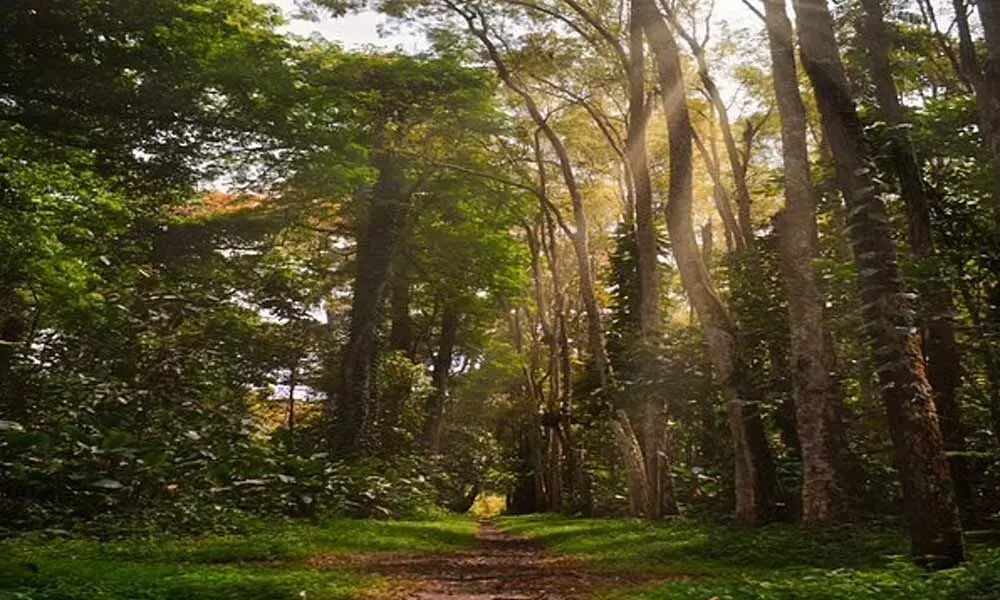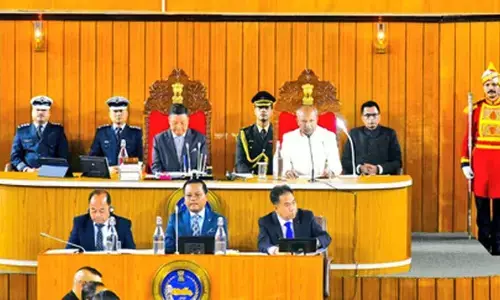Re-grown tropical forests may have short lifespan: Study

Re-grown tropical forests may have short lifespan: Study
Natural forest regeneration is regarded as a cost-effective strategy for countries to meet their ecological restoration and carbon sequestration goals
Natural forest regeneration is regarded as a cost-effective strategy for countries to meet their ecological restoration and carbon sequestration goals. However, a new study shows that it may not be helpful in the long term. Even when reports of forest recovery in tropical regions generate optimism, the study led by researchers from Columbia University, University of Sao Paulo and the Federal University of ABC in Brazil suggested that restored forests have a high probability of being cleared within a few years.
Preventing the re-clearing of second-growth forests is a major challenge for restoration efforts in tropical regions, according to a study conducted by authors and others, who found that a third of regenerating areas in the Brazilian Atlantic Forest were cleared again, mostly after four to eight years of regeneration.
The study published in Environmental Research Letters, quantifies forest regeneration in the Brazilian Atlantic Forest and identifies factors that influence how long the regenerated forest survives.
The Brazilian Atlantic Forest is a rich natural area that originally occupied 150 million hectares along the Atlantic coast. Only about 32 million hectares remain today. The highly fragmented and threatened ecosystem is now considered a regeneration hotspot.
The authors used detailed land use cover data from 1985 to 2019 to map and track the fate of over 4.5 million hectares of regenerated forests in the Brazilian Atlantic Forest. They found that only 3.1 million hectares persisted until 2019.
"While the persistence of two-thirds of regenerated forest in the region casts a positive outlook for the biome's conservation, the short life span of regenerated forests emerges as a new challenge for restoration efforts in the region," said Pedro Ribeiro Piffer, a PhD candidate at Columbia and the lead author of the study.
The ephemeral nature of these regrown forests limit the biodiversity and carbon storage benefits of regeneration, he said.
"Carbon sequestration through tropical reforestation and natural regeneration can make an important contribution to climate change mitigation, given that forest cover in many tropical regions increased during the early part of the 21st century," said senior author Maria Uriarte, a professor at Columbia's Earth Institute who studies tropical forest dynamics.
"However, the size of this carbon sink will depend on the degree to which these forests are permanent and protected from re-clearing," she added.
In a previous paper, Piffer and Uriarte found that without these reversals in reforestation in the Brazilian Atlantic Forest region could have sequestered 1.75 billion tons of carbon which is three times more than the estimated actual sequestration of 0.52 billion tons. "Our results underline a double challenge for forest conservation in tropical regions, where not only do we need to restore degraded areas, but we also need to ensure the persistence of these young regenerating forests," said Jean Paul Metzger, an ecology professor at the University of Sao Paulo and a co-author on the new study.
The researchers note that ensuring the persistence of tropical forest regeneration is crucial for nations to achieve their restoration and carbon sequestration commitments under the Paris Agreement.











